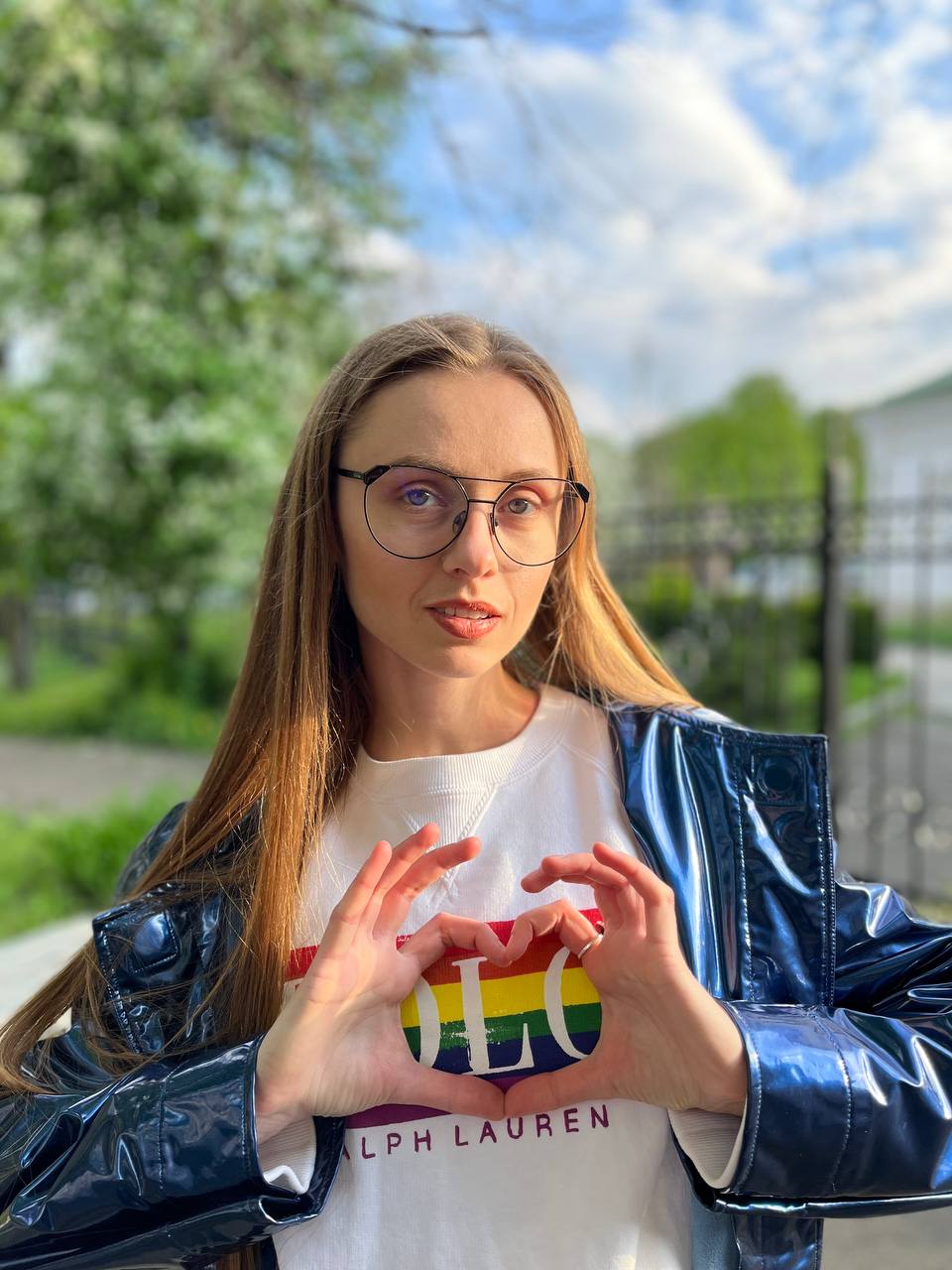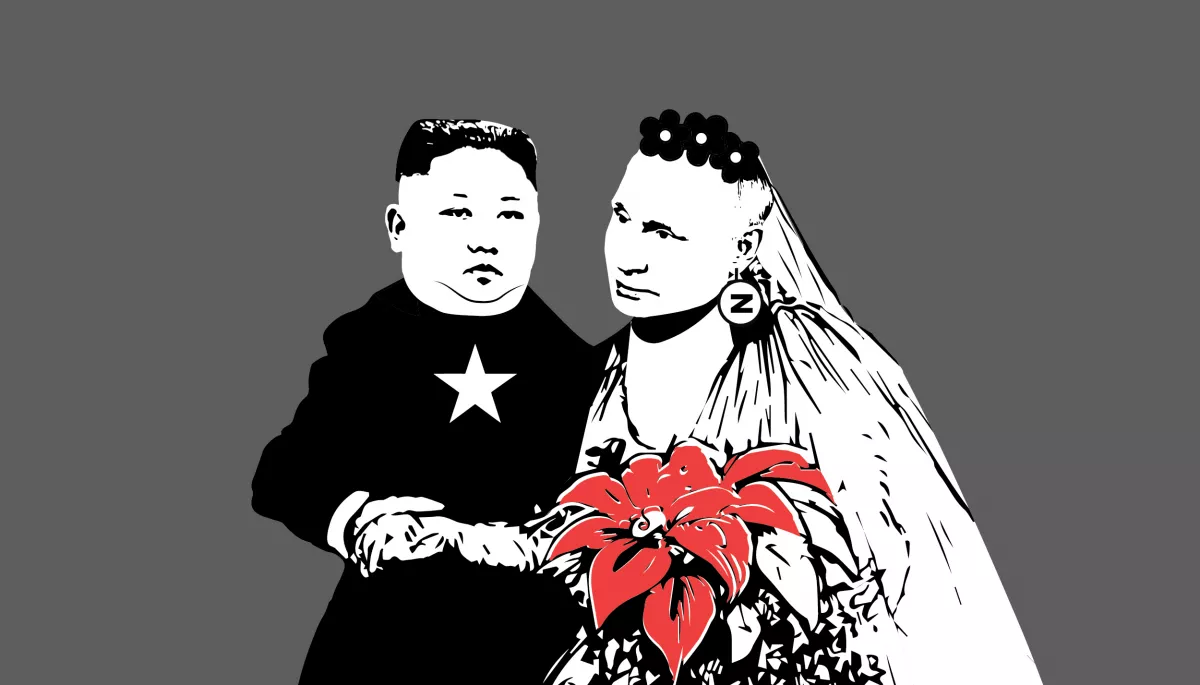

Українською читайте тут.
From June 18-19, 2024, a bilateral meeting was held in Pyongyang between Russian and North Korean delegations. The Russian contingent included Foreign Minister Sergei Lavrov, Presidential Press Secretary Dmitry Peskov, and President Vladimir Putin himself. Putin’s visit to North Korea, his first since 2000, culminated in the signing of a comprehensive strategic partnership agreement with North Korea.
Leading up to the visit, Putin authored an article for the principal publication of the Workers' Party of North Korea. He recounted the historical ties between the USSR and North Korea, highlighted Moscow's involvement in the Korean Civil War of 1950-1953, and underscored the Soviet Union’s role as the first country to establish diplomatic relations with Pyongyang. Furthermore, he extolled the Kim dynasty's enduring leadership in North Korea since the mid-20th century.
Against the backdrop of growing cooperation between the authoritarian regimes of Russia and North Korea, NATO has raised alarms not only regarding the supply of ammunition to Russia but also about the security dynamics on the Korean Peninsula. This concern stems from a series of provocative actions by the DPRK, including activities in the demilitarized zone (DMZ), a 4-kilometer-wide area along the demarcation line between North and South Korea. Notably, North Korea has resumed the Cold War-era tactic of sending balloons filled with garbage into South Korean border cities. This practice, aimed at responding to South Korean balloon launches carrying K-pop flash drives and freedom-themed leaflets, had largely ceased by the late 1990s. However, tensions have flared up again, prompting North Korea to retaliate by resuming these debris-laden balloon flights.
In 2023, the supreme court of North Korea overturned criminal charges against South Koreans for sending balloons filled with bullets into North Korea, further escalating the situation. This was a response to a 2020 South Korean court ruling that had criminalized similar actions by activists.
In a significant diplomatic development, North Korean leader Kim Jong Un visited Russia in September 2023. During his meeting with President Putin in Vladivostok, a "significant and important period in the development of Russian-Korean relations" was declared, according to the Korean Central News Agency (KCNA). This meeting marked the beginning of North Korea's sale of artillery shells and ballistic missiles to Russia. Despite the criticisms from Russian military bloggers about the quality of North Korean weapons, the increased supply of ammunition has enabled Russia to sustain its military operations. This support, combined with Russia's ability to import prohibited spare parts through third countries, has allowed Moscow to potentially equip its forces with more ammunition than Ukraine receives from its allies.
This year, Russian President Vladimir Putin visited the Democratic People's Republic of Korea (DPRK), culminating in the signing of an agreement for a comprehensive strategic partnership aimed at strengthening Korean-Russian trade relations. Notably, Putin has indicated that he does not rule out future cooperation in the military sector. South Korean officials have reported that North Korea is already supplying ammunition and equipment to Russia, with plans likely to continue in exchange for Russian military technology.
A report by the Institute for the Study of War (ISW) suggests that Russia's objectives extend beyond acquiring weapons. The country is also seeking other benefits, such as the deployment of North Korean workers to the occupied territories of Ukraine to assist with reconstruction efforts.
Reception ceremony: best cult of persons traditions
The topic of the Russian president's visit to the DPRK was widely discussed in Russian Telegram channels even before the meeting began. Propagandists shared photos of the decorated streets of Pyongyang along Putin's route. Russian flags and portraits of Putin adorned the lighting poles of highways from the airport. Large banners with messages such as "Long live Korean-Russian friendship," "Long live unbreakable Korean-Russian friendship and unity," and "Welcome, Putin" were displayed on buildings.
Kim Il Sung Square was adorned with traditional North Korean portraits of Russian and North Korean leaders. The building of the DPRK Ministry of Foreign Economic Relations featured the flags of Russia and North Korea arranged in the shape of the letter V, symbolizing Russian armed aggression against Ukraine. In keeping with Soviet tradition, the leaders' meeting included congratulatory speeches by pioneers and performances of songs such as "Holy War," "Katyusha," and "Where the Motherland Begins."
"Many on the right, particularly monarchists, have criticized socialism as terrible, labeling the DPRK as a red dictatorship. Yet, in the 'war that determines the future of great Russia,' amid quotes from the philosopher Ilyin and for the 'Russian world,' it is a socialist country (yes, a red dictatorship) that is purportedly preventing our downfall... And that's cool," stated a Telegram channel with 25,000 subscribers.
On the eve of the visit, an article by Putin was published in the Korean newspaper "Nodon Sinmun" ("Worker's Newspaper"), in which he praised the traditions of friendship and cooperation between the two nations. Despite this, during the decades of "friendship and cooperation," no Soviet Secretary General ever visited North Korea, and Putin's previous visit to the current dictator's father occurred more than twenty years ago.
The ceremony was imbued with a neo-Soviet arrangement, featuring Russian and North Korean symbols instead of Soviet ones. Even the formal address between the dictators as "comrade" harkens back to the communist regime in Russia.
However, as highlighted in a Carnegie Center article, what might appear to be a restoration of the Soviet past is "a reconstruction not of the Soviet reality, but of the current myth about it." The author, Oleksandr Baunov, notes that "Soviet leaders did not like and even despised the Kims, knowing the true nature of their proteges, their true origins, and true fighting paths. Even those Soviet leaders who did not follow Marx closely understood that there is nothing Marxist-Leninist in this hereditary Juche, but rather a combination of barbarism and governmental insolence tolerated for geopolitical reasons."
Joint opposition to sanctions and destruction of the regime of restrictions against the DPRK
Both Russia and North Korea are under sanctions from most countries of the world, so Putin's words after the treaty signing ceremony that their states "continue to oppose the practice of sanctions suppression as a tool used by the West to maintain hegemony" were quite expected. In addition, Putin called for a review of the indefinite restrictive regime against North Korea "inspired by the US and its allies", while accusing the West of trying to hide their aggressive intentions in the region through "propaganda stamps".
After North Korea's first nuclear bomb test in 2006, UN Security Council sanctions, including an arms embargo, were imposed on North Korea. Russia also joined the position of condemning Pyongyang's actions and supported the adoption of resolution 1718(2006).
However, China and Russia, unlike other UN member states, did not immediately join the sanctions regime against North Korea, but only in 2009 — after the second nuclear test. With the beginning of the war against Ukraine, Moscow needed a reliable ally, and taking into account the damaged relations with the Western world, Russia began to look for one in Asia. If China is not ready for an open confrontation with the West because of the importance for its own economy of trade relations with Western powers, North Korea has had more freedom of action vis-à-vis the US and NATO.
The military-technical cooperation and arms trade between Russia and North Korea, which commenced following Kim Jong Un's visit to Vladivostok in 2023, represent a clear violation of the existing sanctions regime against North Korea. This cooperation escalated in March 2024, when Russia started supplying oil to North Korea, further breaching the 2017 UN resolution sanctions. These systematic violations, seemingly orchestrated by Putin, could serve as a message to the West regarding the inefficacy of sanctions as a political pressure tool.
Moreover, Russia’s refusal to renew the mandate of the UNSC 1718 Committee of Experts, which monitors the sanctions regime and expired in April 2024, facilitates Putin’s circumvention of sanctions against North Korea, allowing continued military-technical cooperation.
The newly signed comprehensive strategic partnership treaty potentially paves the way for further military-technical cooperation between Russia and North Korea. Article 21 of this treaty mentions "cooperation for the purpose of concluding and further implementation of industry agreements, as well as agreements in other areas not provided for by this Treaty," which contradicts UNSCR 1718 (2006), prohibiting the supply of weapons or related materials to North Korea. Given Russia’s veto power in the Security Council, any attempt to extend sanctions against North Korea or impose new sanctions on Russia is likely to be obstructed.
At the same time, Russian propagandists assert that the policies of the Biden administration have undermined 30 years of American diplomatic achievements and contributed to Russia's closer ties with China and, more recently, North Korea. This narrative is manipulative, as it effectively blames the West for not making concessions to Russia, refusing the December 2022 ultimatum, and continuing to support Ukraine in its war against Russia. Forming alliances with pariah states like Iran and North Korea has become a necessity for Putin to sustain the Russian military's capacity to wage war.
The propagandists' thesis has some validity, but not in the way presented by Russian agitprop. If Russia had succeeded in capturing Ukraine and the West had not supplied Ukraine with weapons, the Russian army would not be facing ammunition shortages, and Putin would not need to seek alternative means to address this issue. However, the primary cause of the "destruction of 30 years of American diplomatic achievements" is Russia's decision to initiate the largest war in Europe since World War II.
"Dotted axis Beijing — Pyongyang — Moscow"
In the mentioned article, Putin also expressed gratitude to Pyongyang for its stance on the war in Ukraine: "We highly appreciate the strong support of the DPRK in conducting the Russian special military operation." In response, Kim Jong-un initiated bilateral talks with delegations on the theme of "Russia's role in maintaining strategic stability and balance in the world," and also endorsed the Russian war against Ukraine. A hostile Telegram channel with 226,000 subscribers commented that the DPRK is a "child" of China, suggesting that Pyongyang's rhetoric actually reflects Beijing's position in this war.
Conversely, a Sky News report indicates that China is not pleased with the growing closeness between North Korea and Russia: “China accounts for 90% of North Korea's trade. Chinese leader Xi Jinping has close ties to Russia, purchasing its oil and gas and sending Russia dual-use equipment and semiconductors that the West claims are being used in Russia's war in Ukraine. However, China does not want Russia to gain more influence in its traditional sphere of influence in North Korea."
A BBC article also suggests that Beijing is cautious about the Moscow-Pyongyang rapprochement and does not want to be part of a Beijing-Moscow-Pyongyang axis. The authors argue that during Putin's recent visit to China, "Chinese authorities opposed the Russian leader going directly to North Korea on their behalf and recommended separating these two trips. Both Russia and North Korea need China much more than they need each other. Additionally, the Chinese Communist Party leadership does not want to create the impression that Beijing is encouraging their rapprochement."
The security situation in East Asia
Russian agitprop circulated quotes from the dictators and video clips from their joint statements, particularly mentioning the West. In one of his speeches, Putin told Kim Jong-un that "Russia is fighting against the US imperialist policy, which has been imposed for decades." Given the hostile relationship between the DPRK and the US, Putin sought to win over the North Korean dictator, using North Korea's rhetoric to gain military support to continue the war.
Reacting to the joint statements of the dictators, Russian propagandists claimed that Putin's words will have significant consequences, particularly aiming "to disrupt the current model of UN regulation." They argue that the new partnership agreement should alter the security architecture in East Asia and potentially worldwide.
The new Russian-Korean treaty replaces the previous agreements of 2000 and 2001, featuring a commitment to mutual assistance in case of aggression against either party. According to Russian Telegram channels, signing this agreement was "a strong blow to the United States and Biden personally," which Trump is expected to leverage in the upcoming US elections.
However, amidst North Korean provocations, this treaty threatens to destabilize the Korean Peninsula, increasing tensions between South and North Korea. In the event of a conflict, Russia and the United States could become involved, potentially leading to a global war. This prospect, along with the potential enhancement of North Korea's missile program through Russian technology, serves as a means of blackmail against the West and the US. Ironically, Putin and Kim Jong-un's joint statement asserts they "do not accept the language of blackmail and dictation."
North Korean Lend-Lease and Kim's troops against Ukraine
According to South Korea's Defense Minister in an interview with Bloomberg, North Korea has already delivered 10,000 transport containers filled with weapons to Russia, potentially containing up to 4.8 million artillery shells. South Korean military officials indicated that North Korea might also be supplying Russia with anti-tank missiles, rifles, mortars, and ballistic missiles, which Russia subsequently used in its attacks on Ukraine.
During his visit, the Russian dictator mentioned that Russia does not rule out military-technical cooperation with the DPRK under the newly signed agreement. This could enable North Korea to obtain advanced technologies necessary for modernizing its weapons, further fueling Russia's military efforts in the war with Ukraine. Despite this, Kim Jong Un cynically described the treaty as peaceful, stating it "has a defensive nature and will accelerate the creation of a multipolar world."
In the Z-segment of Russian Telegram channels, there were discussions about future supplies of North Korean weapons. One channel with 122,000 subscribers urged Kim Jong-un to deliver super-heavy MLRS, arguing that these weapons "still destroy islands and can be used against Ukraine." They emphasized the importance of these weapons for Russia, expressing hopes for ballistic missiles and new North Korean M2018 self-propelled artillery systems. A channel with 110,000 subscribers stated, "The DPRK is the only Soviet investment that paid off... Thanks to my Korean comrades for their help. More shells, nice and different! And rockets, too."
Propagandists suggest that North Korea may not only supply shells and missiles but could also send troops to join the Russian-Ukrainian war. A propaganda channel with 135,000 subscribers speculated that "the trump card up Russia's sleeve could be the threat of a contingent of North Korean volunteers appearing at the front. This may well cool down the ardor of NATO members who are discussing increasing their participation in the war in Ukraine." These assumptions highlight Moscow's sensitivity to allied support for Kyiv, particularly regarding the potential deployment of NATO troops to Ukraine. Discussions about sending instructors or even NATO troops to Ukraine have become more open, as detailed in our previous article.
In general, by its actions, Russia is trying to demonstrate the existence of an alternative camp of states that opposes the "hegemony of the West", and the DPRK as its reliable ally. Perhaps he is committed to "friendship" with Russia, because exile states and authoritarian countries tend to band together and stand in solidarity against the world order, but the indicators of freedom in such countries are disappointing.
North Korea has no freedom of the press (ranked 177 out of 180), has some of the most unfree people (ranked 206 out of 210), and has a complete lack of democracy, worse than only Myanmar and Afghanistan. Perhaps the North Korean military-industrial complex makes it possible to saturate the Russian army with shells and weapons, but economic opportunities remain limited due to the low GDP. Based on this, the alliance between Russia and North Korea gives both states the opportunity to blackmail the West and Russia to maintain the intensity of the offensive in Ukraine, but in the long term, the DPRK may not be a very effective ally.
However, the new friendship between Russia and North Korea has already caused a reaction. On June 18, US Secretary of State Anthony Blinken said that the United States "will do everything possible to end the support provided (to Russia. — "DM") by countries such as Iran and North Korea." Blinken argued for this position by the fact that Iran, the DPRK and China prefer to see the collapse of the US and the NATO system, and a defeat in Ukraine will make the United States more vulnerable.
And on the eve of Putin's visit to Pyongyang, the EU imposed sanctions against nine people and companies that help the weapons programs of North Korea and Russia. They are involved in North Korea's illegal weapons development programs and its support for the war against Ukraine. And, ultimately, the conclusion of the Strategic Comprehensive Partnership Treaty catalyzed a change in policy on the part of South Korea. It is about the intention to review Seoul's ban on the transfer of lethal weapons to Ukraine, which the country's president said on June 20.
Illustration by Natalya Lobach.


